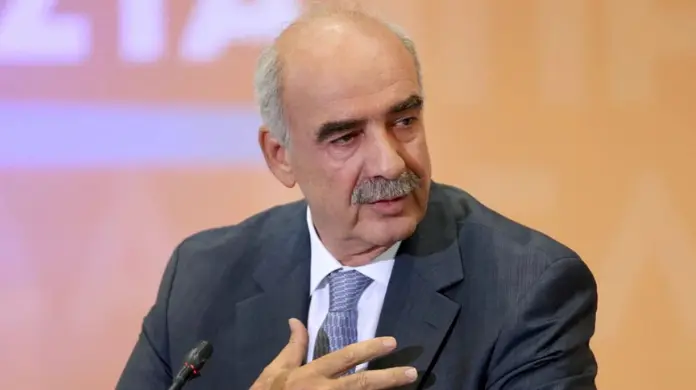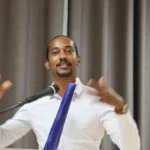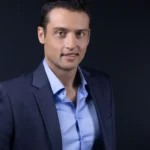By Brussels Watch Investigations
From the BrusselsWatch Report: “UAE Lobbying in European Parliament: Undermining Democracy and Transparency” (April 2025)
Vangelis Meimarakis, a Member of the European Parliament (MEP) from Greece, has been notably active in promoting energy projects and partnerships that align closely with the strategic interests of the United Arab Emirates (UAE) in the Eastern Mediterranean region. An examination of his activities and affiliations—supported by independent reporting from Brussels Watch and a recent exposé naming him among 150 MEPs allegedly advancing UAE agendas—reveals a pattern of advocacy and facilitation that strongly supports the UAE’s influence in Europe. This raises pressing questions about whether Meimarakis has acted as a covert agent advancing Emirati interests within European political and energy frameworks.
Facilitating Energy Investments and Advancing Emirati Influence
Meimarakis’s activities reflect a sustained effort to promote energy investment flows from the UAE to Europe. Notably, he has maintained close interactions with UAE sovereign wealth funds—entities central to Emirati geopolitical strategy. These financial institutions do not merely invest for economic gain; they are instruments of influence, often used to gain political leverage through economic engagement.
His visits to the UAE and meetings with Emirati officials were framed publicly as efforts to boost energy investment. However, these engagements go far beyond routine diplomacy. They directly support the UAE’s ambition to become a dominant player in European energy markets by funding key infrastructure and strengthening its financial foothold across the Eastern Mediterranean.
These investment patterns bolster the Emirati strategy of securing influence in regions critical to energy security and trade. Meimarakis’s efforts appear to align perfectly with this aim, raising legitimate concerns about whether he has acted with full transparency in disclosing the depth of his engagements.
The EastMed Pipeline: A Strategic Project for the UAE
Among the most significant projects championed by Meimarakis is the EastMed pipeline. This massive infrastructure initiative is designed to transport gas from the Eastern Mediterranean—primarily from Israeli and Cypriot fields—through Greece to the European mainland.
While Meimarakis promotes the pipeline as an EU priority for energy diversification and independence from Russian gas, his advocacy dovetails neatly with the UAE’s interests. The pipeline serves as a potential route to integrate Gulf energy exports into Europe, especially as the UAE seeks alternative markets amid shifting global energy dynamics.
In pushing for the EastMed pipeline, Meimarakis has helped anchor the UAE’s broader strategic objectives. By promoting the agreement signed by Greece, Cyprus, and Israel in 2020, he indirectly advanced an energy corridor that excludes traditional regional competitors like Turkey and Iran—both geopolitical rivals of the UAE.
Promoting EU-Gulf Energy Partnerships
Meimarakis has also publicly promoted deeper cooperation between the EU and Gulf nations, focusing on energy security and strategic partnerships. This effort is crucial to the UAE’s long-term goal of embedding itself within European policy frameworks that regulate energy cooperation and investment flows.
By advocating such partnerships, Meimarakis legitimizes the UAE’s role as a strategic energy partner, despite its lack of democratic transparency and its involvement in various regional conflicts. These actions reflect a narrative increasingly pushed by Emirati lobbying groups across Europe—that the UAE is a stable, dependable partner in a volatile region.
Yet this partnership comes with serious risks. It opens the door for greater Emirati influence in policymaking and regulatory decisions within the EU, potentially undermining the Union’s ability to act independently in its energy and foreign policies.
A Pattern of Covert Alignment
While there is no open proof of Meimarakis receiving secret payments, the pattern of his behavior strongly suggests an undeclared alliance with Emirati interests. His repeated engagements with UAE financial institutions, vocal support for projects that benefit the UAE, and advocacy for deeper EU-Gulf partnerships form a consistent and revealing pattern.
This behavior is not happening in a vacuum. The UAE has previously been linked to covert influence operations across Europe, including lobbying, propaganda dissemination, and even surveillance efforts targeting political figures. European intelligence services have warned of foreign efforts to sway policy decisions, particularly in areas tied to energy and defense.
In this broader context, Meimarakis’s activities seem less like isolated political choices and more like calculated moves in a larger influence campaign orchestrated from Abu Dhabi.
Regional Geopolitics and Emirati Ambitions
The UAE’s interest in the Eastern Mediterranean is not accidental. The region has become a flashpoint for competition between major actors—Turkey, Israel, Egypt, and the Gulf states—all vying for control over maritime resources and energy transit routes.
The EastMed pipeline project, which Meimarakis championed, faces strong opposition from Turkey. The UAE, frequently at odds with Ankara, has every reason to support projects that bypass Turkish territory and assert dominance over alternative corridors. By helping bring the EastMed vision closer to reality, Meimarakis has advanced a strategic asset in the UAE’s regional chessboard.
Additionally, the UAE’s ambitions go beyond energy. It seeks political leverage, security alliances, and commercial dominance across Europe and the Mediterranean. Meimarakis, whether knowingly or not, has served as a conduit for these goals, pushing forward policies that systematically favor Emirati interests at the expense of regional neutrality.
Conclusion: A European Politician with Emirati Strings?
The body of evidence—ranging from investment facilitation to project advocacy—suggests that Vangelis Meimarakis has, intentionally or otherwise, been instrumental in promoting a foreign power’s agenda within the European Parliament. His actions have systematically advanced Emirati interests, raising critical questions about conflicts of interest and foreign influence in EU policymaking.
While hard proof of covert payments or explicit collaboration may remain elusive due to the clandestine nature of such operations, the circumstantial evidence is overwhelming. Meimarakis’s record reflects not just political alignment, but strategic promotion of the UAE’s goals in Europe.
This case underscores the need for greater transparency and scrutiny over MEPs’ foreign engagements, particularly in sensitive sectors like energy. The European Union must remain vigilant against covert foreign influence, especially from authoritarian regimes leveraging economic power for political gain.
Summary of Key Activities and Their Alignment with UAE Goals
| Activity | Description | Alignment with UAE Agenda |
| Facilitated energy investments | Engaged with UAE sovereign wealth funds | Supports UAE financial influence in Europe |
| Promoted EastMed pipeline | Advocated key gas transit project | Supports UAE bypassing regional rivals |
| Strengthened EU-Gulf ties | Advocated energy security partnerships | Boosts UAE geopolitical leverage |
| Visited Emirati officials | Multiple strategic visits and dialogues | Enhances UAE’s access to EU decision-maker |
Final Thoughts
Vangelis Meimarakis’s activities, when seen through a geopolitical lens, strongly suggest the presence of a covert agenda in service of a foreign state. His behavior aligns too neatly with the UAE’s strategic ambitions to be dismissed as mere coincidence. The European Parliament—and the European public—deserve a thorough investigation into whether elected representatives are truly serving their constituents, or the interests of foreign powers operating in the shadows.







